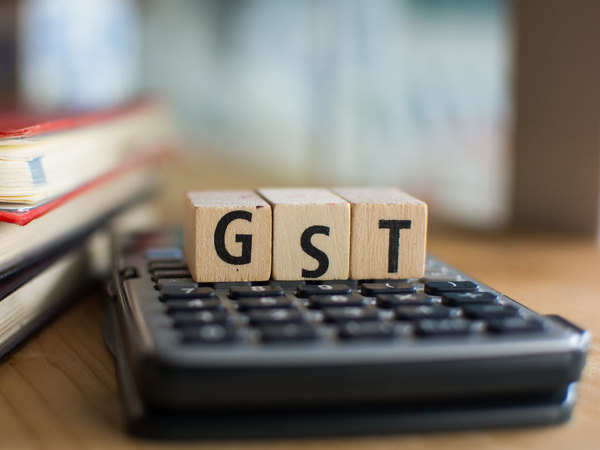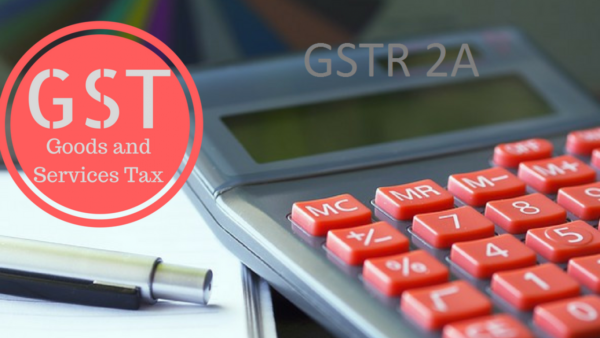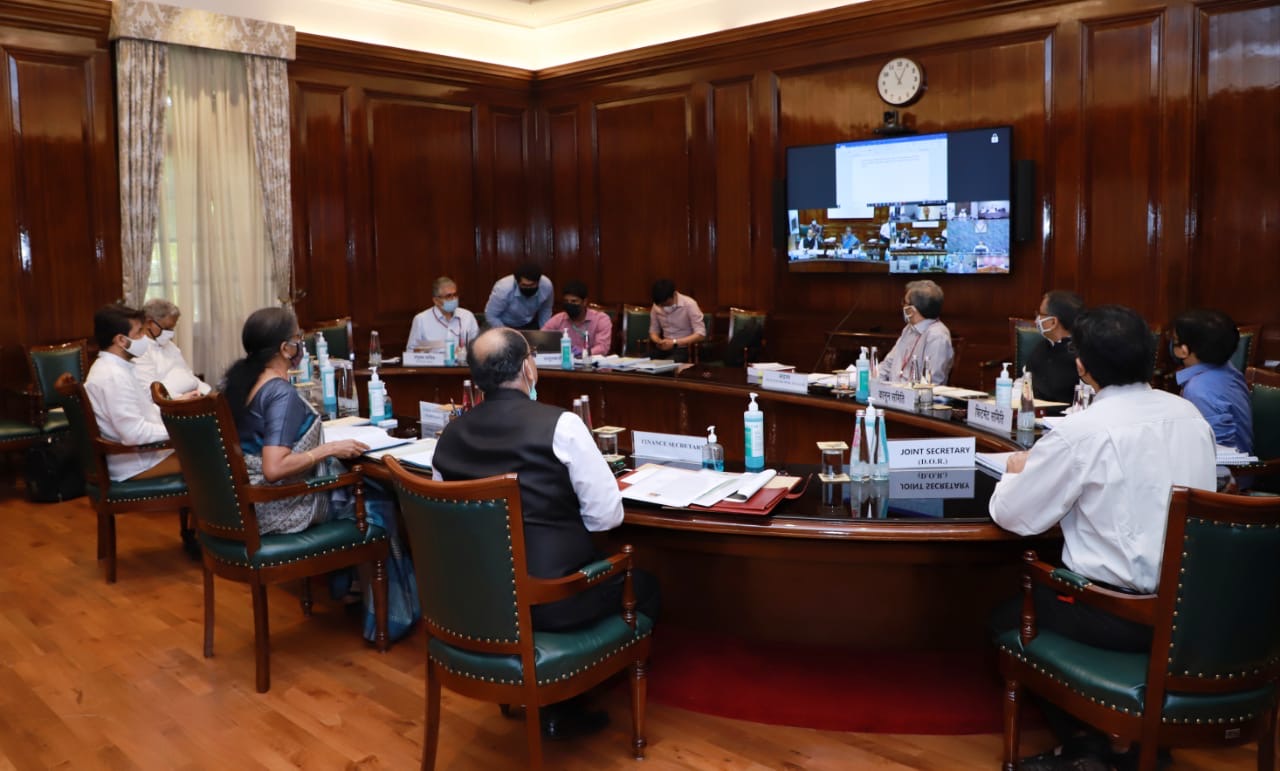Sixteen amendments in CGST Act, 2017 were made through Section 118 to Section 133 of the Finance Act, 2020. However till now out of these amendments only Section 128 of the Finance Act, 2020, whereby the transitional provisions viz Section 140 of the CGST Act, 2017 was amended, has been made operative vide Notification No. 43/2020- Central Tax dated 16.05.2020.
It was decided by the GST Council in its 40th Meeting held on 12.06.2020 that certain Sections of Finance Act, 2020 amending CGST Act, 2017 will be brought into force from 30.06.2020. In consonance to said decision Notification No. 49/2020- Central Tax dated 24.06.2020 has been issued wherein it has been mandated that provisions of Section 118, 125, 129 and 130 of the Finance Act, 2020 shall come into force from 30.06.2020.
Let us now understand about which amendments made in CGST Act, 2017 by Finance Act,2020 will come into force from 30.06.2020.
1. Section 2 of the CGST Act, 2017 ( Section 118 of the Finance Act, 2020)
Section 118 of the Finance Act, 2020 amended the definition of “union territory” as mandated under clause (114) of Section 2 of the CGST Act,2017. The amendment has been made due to reorganization of Union Territories by way of merger in case of ‘Dadra and Nagar Haveli and Daman and Diu’ and constitution of new Union Territory ‘Ladakh’.
For ready reference of our readers the definition before and after amendment is tabulated below:
| Before Amendment | After Amendment |
| SECTION 2. Definitions (114) “Union territory” means the territory of— (a) the Andaman and Nicobar Islands; (b) Lakshadweep; (c) Dadra and Nagar Haveli; (d) Daman and Diu; (e) Chandigarh; and (f) other territory. | SECTION 2. Definitions (114)“Union territory” means the territory of- (a) the Andaman and Nicobar Islands; (b) Lakshadweep; (c) Dadra and Nagar Haveli and Daman and Diu; (d) Ladakh; (e) Chandigarh; and (f) other territory. |
This above amendment has now been made effective from 30.06.2020 vide Notification No. 49/2020- Central Tax dated 24.06.2020.
2. Section 109 of the CGST Act, 2017 ( Section 125 of Finance Act, 2020).
Section 109 of the CGST Act, 2017 mandates provisions regarding constitution of appellate tribunal and benches thereof. As per the earlier provisions such tribunal and benches could be specified by Central Government for each State or union territory except the State of Jammu and Kashmir wherein such tribunal shall be the State Appellate Tribunal constituted under J&K GST Act, 2017.
Section 125 of the Finance Act,2020 amended the above provision and the special dispensation for State of Jammu and Kashmir was removed. The amendment has been made due to reorganization of erstwhile State of Jammu and Kashmir. The Central Government has now been empowered to notify the bench of Appellate Tribunal for the newly constituted Union Territory of Jammu & Kashmir.
For ready reference of our readers the provisions of sub-section (6) of Section 109 before and after amendment is tabulated below:
| Before Amendment | After Amendment |
| SECTION 109. Constitution of Appellate Tribunal and Benches thereof. — (6) The Government shall, by notification, specify for each State or Union territory except for the State of Jammu and Kashmir, a Bench of the Appellate Tribunal (hereafter in this Chapter, referred to as “State Bench”) for exercising the powers of the Appellate Tribunal within the concerned State or Union territory : Provided that for the State of Jammu and Kashmir, the State Bench of the Goods and Services Tax Appellate Tribunal constituted under this Act shall be the State Appellate Tribunal constituted under the Jammu and Kashmir Goods and Services Tax Act, 2017 | SECTION 109. Constitution of Appellate Tribunal and Benches thereof. — (6) The Government shall, by notification, specify for each State or Union territory |
This above amendment has now been made effective from 30.06.2020 vide Notification No. 49/2020- Central Tax dated 24.06.2020.
3. Section 168 of the CGST Act,2017 ( Section 129 of Finance Act, 2020).
Section 168 of the CGST Act, 2017 mandates provisions regarding power to issue instructions or directions. Sub-section (2) of said Section provides the meaning of Commissioner for the purposes of issue of instructions or directions under various sections of the CGST Act, 2017. The meaning of Commissioner is mandated as Commissioner or Joint Secretary posted in the Board and it has been provided that such Commissioner or Joint Secretary shall exercise the powers specified in the specified sections with the approval of the Board.
Section 129 of the Finance Act,2020 amended the above sub-section (2) to Section 168 of the CGST Act, 2017. Before understanding the implications of change, let us refer to the provisions of sub-section (2) of Section 168 before and after amendment which is tabulated below:
| Before Amendment | After Amendment |
| SECTION 168. Power to issue instructions or directions. — (2) The Commissioner specified in clause (91) of section 2, sub-section (3) of section 5, clause (b) of sub-section (9) of section 25, sub-sections (3) and (4) of section 35, sub-section (1) of section 37, sub-section (2) of section 38, sub-section (6) of section 39, sub-section (1) of section 44, sub-sections (4) and (5) of section 52, sub-section (5) of section 66, sub-section (1) of section 143, sub-section (1) of section 151, clause (l) of sub-section (3) of section 158 and section 167 shall mean a Commissioner or Joint Secretary posted in the Board and such Commissioner or Joint Secretary shall exercise the powers specified in the said sections with the approval of the Board. | SECTION 168. Power to issue instructions or directions. — (2) The Commissioner specified in clause (91) of section 2, sub-section (3) of section 5, clause (b) of sub-section (9) of section 25, sub-sections (3) and (4) of section 35, sub-section (1) of section 37, sub-section (2) of section 38, sub-section (6) of section 39, sub-section (1) of section 44, sub- sections (4) and (5) of section 52, |
Lets now understand the change. The above amendment has removed sub-section (5) of section 66 from Section 168(2) of the CGST Act, 2017. This removal means that the Commissioner determining the expenses and the remuneration for the special audit directed under Section 66 of the CGST Act, 2017 need not be the Commissioner or Joint Secretary posted in the Board.
Further the amendment has kept second proviso to Section 143(1) out of its ambit. It is pertinent to mention here that the second proviso gives power to Commissioner to extend time of bringing back the goods given for job work by a further period of one year for inputs and two years for capital goods. Accordingly with the amendment, the Commissioner empowered under the second proviso to Section 143(1) of the CGST Act, 2017 to extend the period for bringing back the goods given for job-work shall also need not be the Commissioner or Joint Secretary posted in the Board.
This above amendment has now been made effective from 30.06.2020 vide Notification No. 49/2020- Central Tax dated 24.06.2020.
4. Section 172 of the CGST Act, 2017 (Section 130 of the Finance Act, 2020)
Section 172 of the CGST Act, 2017 gives powers to the Central Government to relax applicability of certain provisions of Act or Rules, as may be necessary for purpose of removing difficulty by issuing a general or special order. However as per proviso to said Section, such an order cannot be issued after expiry of three years from date of commencement of the Act. This means as per the proviso no such order can be issued after 30.06.2020 ( 3 years from introduction of GST viz 01.07.2017).
Recently using the powers conferred by Section 172 of the CGST Act, 2017 , in order to remove difficulties , Order No 01/2020- Central Tax dated 25.06.2020 has been issued wherein one time extension for revocation of cancellation of registration has been granted.
Considering that lot of issues are being faced by tax payers and thus to continue to remove such difficulties in future also the period of three years for passing of order has been extended to five years. This means that order for removal of difficulties can be issued by Central Government now upto 30.06.2022 instead of earlier date of 30.06.2020.
As the date upto which order can be issued was expiring on 30.06.2020 , the above amendment in Section 172 of the CGST Act, 2017 has been made effective from 30.06.2020 vide Notification No. 49/2020- Central Tax dated 24.06.2020.
For ready reference of our readers the text of Section 172 of the CGST Act, before and after amendment is tabulated below:
| Before Amendment | After Amendment |
| SECTION 172. Removal of difficulties. — (1) If any difficulty arises in giving effect to any provisions of this Act, the Government may, on the recommendations of the Council, by a general or a special order published in the Official Gazette, make such provisions not inconsistent with the provisions of this Act or the rules or regulations made thereunder, as may be necessary or expedient for the purpose of removing the said difficulty: Provided that no such order shall be made after the expiry of a period of three years from the date of commencement of this Act. | SECTION 172. Removal of difficulties. — (1) If any difficulty arises in giving effect to any provisions of this Act, the Government may, on the recommendations of the Council, by a general or a special order published in the Official Gazette, make such provisions not inconsistent with the provisions of this Act or the rules or regulations made thereunder, as may be necessary or expedient for the purpose of removing the said difficulty: Provided that no such order shall be made after the expiry of a period of five years from the date of commencement of this Act. |
***
A BIG THANKS to you for visiting our site and reading this article. Kindly provide your feedback on the above article in comment section below. Also please intimate about other GST issues on which you would require our team to pen down articles.
Doubts on GST may be lodged on ‘Ask GST query tab‘ under ‘Your GST queries’ tab on home page. National level GST experts will provide their reply on the matter raised at the earliest and same can be seen under ‘GST query resolved’ tab under ‘Your GST queries’ tab.
You can also subscribe to our free newsletter to always be updated on GST Law by filling the subscription form at home page.
TW Editorial Team comprises of team of experienced Chartered Accountants and Advocates devoted to spread the knowledge of GST amongst the various stakeholders.




Good presentation